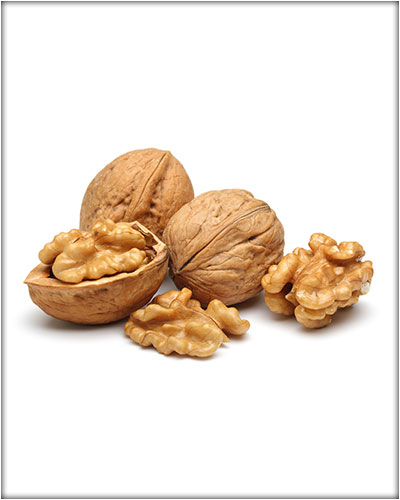Coconut Ice Cream
- 20 Apr - 26 Apr, 2024

Walnuts provide 654 calories per 100gm; 65g of fat, 2mg of sodium, 15g of protien, 441mg of potassium and 14g of carbohydrate.
· Walnuts are the oldest known tree food — they date back to 10,000 BC!
· English walnuts (also known as Persian walnuts) originate in Central Asia and were introduced to California in the 1700s.
· The Greeks called walnuts karyon, meaning “head,” because the shell resembles a human skull and the walnut kernel itself, looks like a brain.
· Walnuts are only harvested once a year, between September and November.
· There are more than 30 varieties of commercially produced walnuts.
· Walnuts have always been considered important for their medicinal properties, including curing bad breath, reducing inflammation, and healing wounds.
· They are also rich in antioxidants, including being a very good source of manganese, copper and the B vitamin biotin.
· EFAs from walnuts secure the bone health of the body. These increase calcium absorption and deposition, while reducing urinary calcium excretion.
· People suffering from diabetes can have walnuts on a regular basis without any significant weight gain, since they contain a high amount of polyunsaturated and monounsaturated fats.
· One of the health benefits of consuming walnuts is that it improves the body metabolism. They provide minerals like potassium, calcium, iron, magnesium, zinc and selenium to the body which help contribute to metabolic activities like growth and development, digestion and nucleic acid synthesis.
Scientific studies prove that the inclusion of walnuts in any diet helps prevent coronary heart diseases by favouring a healthy lipid supply. Their consumption lowers the bad LDL cholesterol and increases the level of good HDL cholesterol.
COMMENTS